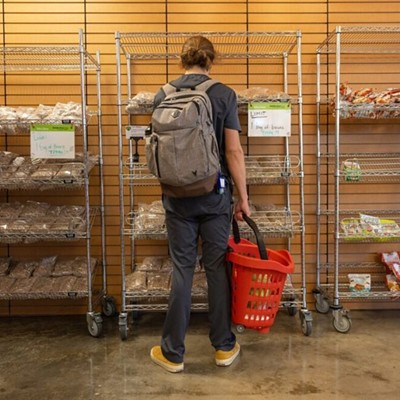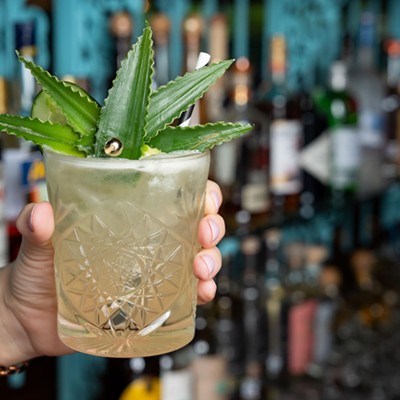You've heard the old adages about dining pitfalls to avoid:
Don't order fish on Mondays. (It's all left over from Friday's seafood shipment, goes the tale, and you don't want gross, slimy salmon.)
Don't eat the bread in the bread basket. (It's supposedly recycled from table to table, people say.)
Don't order the daily special. (It's just a way for the kitchen to use up old food that's on the verge of spoiling, they'll tell you.)
But in the modern era of chef-driven restaurants and places that emphasize fresh, local, seasonal ingredients above all things, are these old wives' tales just that? Or is there still a kernel of truth in the warnings?
"The beauty about food these days is constant availability," says David Luna, executive chef at Line & Lariat in the Hotel Icon. "Seafood is available and my sources have product coming to them or them going to the docks pretty regularly."
In other words, it's probably a safe bet to order seafood any day of the week if you're dining in a restaurant that specializes in seafood or simply takes pride in their ingredients. "Restaurants sourcing their seafood from reputable suppliers is the most important factor," says Luna. Those suppliers are held more accountable, too.
"A well managed kitchen has someone inspecting deliveries for quality. Suppliers learn from the delivery drivers who checks and who doesn't," Luna says. "Suppliers now run a higher risk of spoilage than restaurants do by gambling on demand. We can always send it back if the quality isn't there."
As for the old "specials" adage, this is one that most people routinely ignore now -- and with good reason.
"I don't believe daily specials are an outlet for 'extended stay' food," says Luna. "I like to think chefs use 'specials' more often to promote their talent and create a trend in their establishments."
The "avoid the specials" warning is definitely an old wives' tale, says Genevieve Guy, owner of Bistro Provence: "We usually do specials to try new recipes on customer, not to get rid of old stuff."
The main reason that so many of these old food rules no longer apply, however, doesn't have as much to do with chefs showcasing talent or fresh ingredients. As with most bottom lines, this one is financially based. You won't find a chef bragging about 27 percent food costs, but you will find chefs keeping a much closer eye on their balance sheets in a time when profit margins at most restaurants are slim.
"I don't think everyone realizes that food prices are out of control these days," says Luna. "I've seen some products go from 79 cents a pound to $2.50 a pound over the last few years. The key to success is eliminating potential waste."
Rob Frias, executive chef of Cali Kitchen in Los Angeles, agrees.
"In my kitchen I have a waste-not-want-not kind of mentality," says Frias. "Everything gets utilized in one way or another. I rotate stock as to not keep stale items in my storage areas. Specials are usually creative ways of utilizing items that are not going to be used in the main dishes unless an establishment has a set budget for actual specials."
"In my case," Frias says, "it's a combination of both. Gone are the days of 'getting rid of old food.' Nowadays it's more, 'How can we maximize the potential of an ingredient and avoid waste?'"
But none of this means that chefs or restaurateurs are willing to put their customers' health on the line for a few extra cents saved in food costs -- especially when the incidence of foodborne illnesses has risen 44 percent in the last year alone. And most reputable restaurants certainly aren't going to recycle things like bread or tortilla chips from table to table. Even the abjectly terrible Tex-Mex restaurant I once worked for didn't recycle its tortilla chips.
"I cannot imagine why a chef/operator would risk getting someone sick when the results could be catastrophic," says Luna. "And I'm not at least concerned with the financial part; I'm talking about killing someone."
Customer and food safety are concerns that are -- thankfully -- endemic throughout the industry, says Philippe Gaston, sous chef at Haven and its new raw bar, Cove. "I think for the most part we are all pretty good about keeping everything fresh."
"But," he jokes, "there's obvious places that you shouldn't even go into -- yet we do every day."
So what is the most obvious sign that a restaurant (and its food) should be avoided? That's an easy one, says Luna.
"I use the restroom rule as a factor in choosing a restaurant. Dirty restrooms equals anything imaginable."
Follow Eating Our Words on Facebook and on Twitter @EatingOurWords





